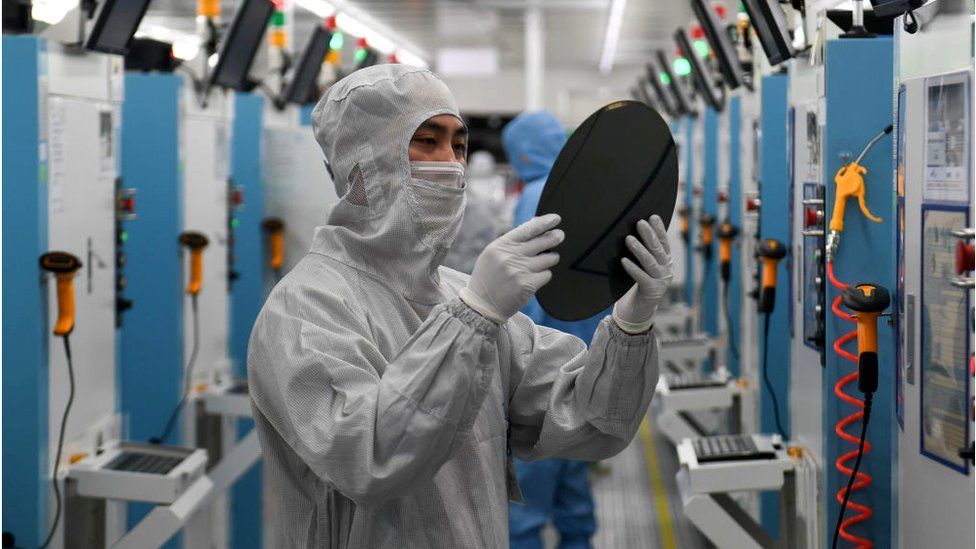|
Getting your Trinity Audio player ready...
|
South Korea has urged the United States to reconsider certain provisions of its CHIPS Act, which restrict Korean chipmakers from expanding their production capacity in China. In a statement submitted to the US Federal Register, the Korean government requested the US Commerce Department to review and clarify the guardrail provision that limits the beneficiaries of the semiconductor boost program from increasing production capacity in China and other designated countries.
The statement emphasized that the guardrail provisions should not place an unreasonable burden on companies investing in the United States. It further requested the US government to review the definition of terms such as “material expansion” and “legacy semiconductor” in the proposed rule.
Seoul also called for a clearer definition of the restricted activities under the “Technology Clawback,” which allows the Commerce Department to revoke the entire funding award if a recipient violates the restrictions. The Korean government expressed its desire to continue close collaboration with the US government on semiconductor-related issues and the CHIPS Act.
In March, the US Commerce Department unveiled the guardrail details for its CHIPS for America Incentive Program, imposing restrictions on recipients of support funds from expanding their advanced and legacy facilities in designated foreign countries by up to 5%. These countries include China, Russia, Iran, and North Korea.
According to the proposal, significant transactions involving the material expansion of semiconductor manufacturing capacity for leading-edge and advanced facilities in the designated countries would be prohibited for a duration of ten years. The definition of “material expansion” includes increasing a facility’s production capacity by 5%. However, facilities in China producing legacy chips are allowed to add new production lines or expand production capacity by up to 10%.
The release of the guardrail proposal has raised concerns among major Korean chipmakers like Samsung Electronics and SK Hynix, as they seek US subsidies for their planned chip manufacturing facilities in the United States while operating key production plants in China.
In a related development, a US representative has called for measures to prevent Korean chipmakers from “backfilling” orders for Micron Technology in China. Beijing recently announced that Micron failed its network security probe, leading to a ban on key infrastructure companies from purchasing from the US-based chipmaker.
In response, Mike Gallagher, the chair of the US House of Representatives committee, urged the Commerce Department to ensure that US export licenses granted to foreign semiconductor memory firms operating in China are not used to backfill Micron. He also called for trade restrictions on Chinese memory chipmaker Changxin Memory Technologies as a retaliatory measure.
Reports have also suggested that the White House has asked the Korean government to refrain from filling China’s chip shortages until China concluded its security probe on Micron in April. However, both the US and Korean governments have not officially confirmed the reports.
South Korea’s Industry Vice Minister Jang Young-jin emphasized that the decision to increase sales in China to fill the gap left by Micron is up to the companies themselves. He noted that Samsung Electronics and SK Hynix are global businesses that will consider all options before making a decision.
The discussions and negotiations between South Korea and the United States highlight the complex challenges and considerations in the semiconductor industry, where global players are navigating economic cooperation, security concerns, and regulatory frameworks. The outcome of these discussions will have significant implications for the future operations and growth of Korean chipmakers in China and their participation in the US market.
